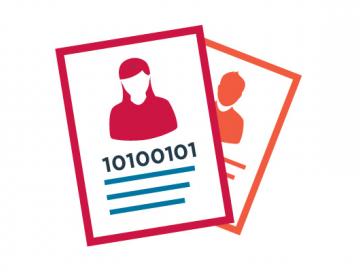26 results, showing 11 to 20
… or a benefit, or claim that you are in trouble.” “Do not click on any links in messages that come to you out … reports that Scamwatch received so far this year, 113,000 were about phone scams. Scammers call or text people and claim to be from well-known businesses or government to steal people’s personal information…
…Text or SMS scams You are contacted on social media or messaged by someone you don’t already know. The scammer pretends to be a friend or romantic interest, a financial advisor, or a business offering an employment opportunity. They learn a lot about you from what you share on social media and deceive you … News Scammers routinely take over or set up fake profiles on social media, messaging platforms and apps. Be aware of scammers using social media to contact you to steal personal and financial details. … Australians have lost more money to social media scams than any other contact method so far in 2024, according to Scamwatch reports. Over 6,000 people reported losing $58.3 million to social media scams in the first 10 months of 2024. Scammers use fake or hijacked profiles on social media, messaging platforms…

… is urging the public to be wary of phone messages from a family member or friend claiming they need help … of messages from unknown numbers claiming to be from their children, parents, relatives or friends,” ACCC … ACCC warning of suspicious messages as “Hi Mum” scams spike…

…You receive a call, message, or email out of the blue from someone claiming to be from a phone company, bank, government department, or trusted company. The caller claims that someone is using your identity or alleges you have carried out or are involved in a serious criminal matter. You are told you … documentation. Many of the victims were monitored 24 hours a day using messaging platforms and device video…

… reports from consumers about receiving emails, text messages and coming across social media posts possibly … You receive an email or text message out of the blue, or come across a social media post, claiming that you will receive, or have the chance to win, a voucher from a well-known retailer. The email, text message or social media post appears legitimate and may use official logos and trademarks (or their look … – If you receive an email or text message out of the blue, or come across a social media post, claiming that you can receive a free or heavily discounted voucher, contact the retailer directly to verify the legitimacy of the offer. Don’t rely on numbers, email addresses or websites provided – find them…

… personal or banking information are: phishing emails and text messages which impersonate banks or utility…

… organisations to scam texts that appear in the same conversation thread as genuine messages. This means now more … to phishing scams in the past year, such as “Hi Mum” and Toll/Linkt text scams, which skyrocketed by 469 per … scammers reaching consumers by disrupting phone calls, SMS, email, social media messaging or other ways…

…News Scams target you - Protect your phone is the latest message from the Australasian Consumer Fraud Taskforce. Phone scams can happen without you even knowing. From cold calling scams promising incredible investment returns, to more sophisticated calls or text messages, to consumers' fixed line and … 1. Be suspicious of unexpected calls and text messages … Before replying to calls or text messages, remember to check the number. If you make a call or…
…. Scammers pretend they are from the police, government, banks or well-known businesses. They use technology (or 'spoofing'), so their call seems like it's from a legitimate phone number. Their texts or emails might be in the same message thread as the real organisation. Always ask 'who's really…

…Text messages are also commonly used by scammers to send competition or prize scams. Scammers often try to snare many people with one SMS sent en masse - this is known as spamming. Scammers may request personal details or payments in scam SMS messages. If you respond, you could also be charged at premium … Be cautious if you are contacted by someone claiming to be from government or a well known company and they request personal details or up-front payments. If you are in doubt about the authenticity of a call, don’t commit to anything. Instead hang up and call the company or government department directly…



